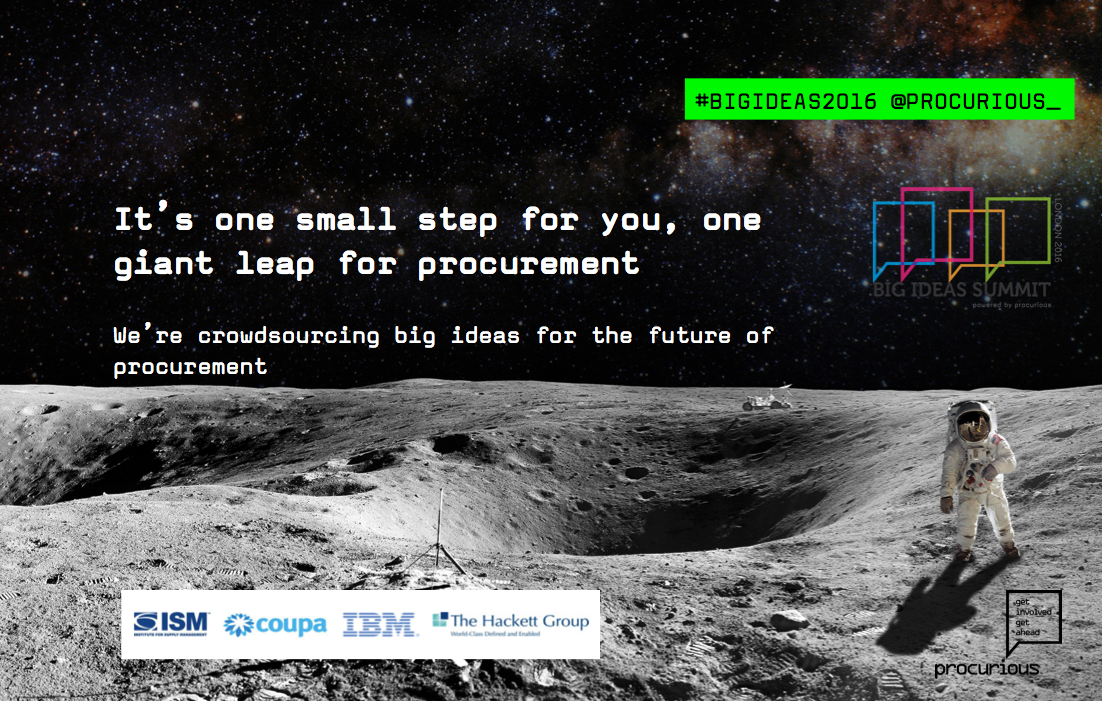Harness the Power of Unstructured Data
Do we still need the smartest guys in the room if we have the smartest machine? IBM paint a vision for the future of procurement and the power of unstructured data.
“Are you going to be relevant in 3-5 years’ time?”
What a start to the day! Barry Ward, Senior Procurement Brand Manager at IBM Global Procurement, has just left the stage, leaving the assembled thought leaders with something big to think about.
Barry, a 27-year veteran in supply chain at IBM, is currently European lead for commercialising Procurement Analytic Solutions with IBM’s clients. This leaves him ideally positioned to provide context for all the discussions that will be happening throughout the day at Big Ideas.
Summarising the global business environment that procurement is currently operating in, Barry described a fast and relentless pace of change, major disruption across markets, and high levels of external upheaval.
Technology as a Disruptor
With increasingly stretched resources, organisations are being asked to do more with less, all the while trying to stay on top of information which, given a greater speed of dissemination, could quickly impact the brand and reputation of the company.
According to Ward, there are “mountains of data” available to organisations. However, as it’s 80 per cent unstructured, and needs sifted before use, it isn’t useful. Procurement needs to harness the power of this unstructured data. This is where the development of cognitive technology looks to be a boon to procurement.
The potential for these cognitive technologies, such as IBM’s own Watson, are just mind-blowing. As the technologies are developed, they will be able to do everything that a human can do, but in a fraction of the time. This is more than AI, it’s like have a computerised “colleague”.
Upskilling Procurement
These technologies will take over the manually intensive activities currently done in procurement, facilitating the ability for work to be carried out anywhere, at any time, in line with increasing mobile access and social collaboration.
The Watson Buying System is just one facet of this technology. IBM are at the stage of proof of concept of this technology. The system will assist with purchasing, based on needs of buyers. It can match pictures of items, or match speech too, to catalogues, and get goods bought for users and delivered anywhere it’s needed.
Systems will provide real-time data, showing potential risks in the supply chain, and how they are being mitigated. According to Barry, mitigating risk through predictive technology will no longer be a “nice to have”, but will become essential for organisations.
Procurement will play a major role in this cognitive revolution, using it to drive value-adding activities for the business, such as a focus on innovation. However, this will bring a challenge of ensuring that procurement have the correct skills to leverage this opportunity.
Procurement professionals will focus more on a data science-type role, as well as on SRM activities. Innovation will be found through building proper, collaborative relationships throughout the supply chain.
Challenge to CPOs
Barry ended by issuing 3 calls to action to procurement leaders:
- CPOs need to adjust the design of their organisation.
- Enabling success for procurement will be driven by using the right technology.
- Procurement needs to upskill in order to drive value-adds for the organisation.
There is no time to waste. There’s no time for incremental steps. As Barry says, it’s time for CPOs to be bold.
